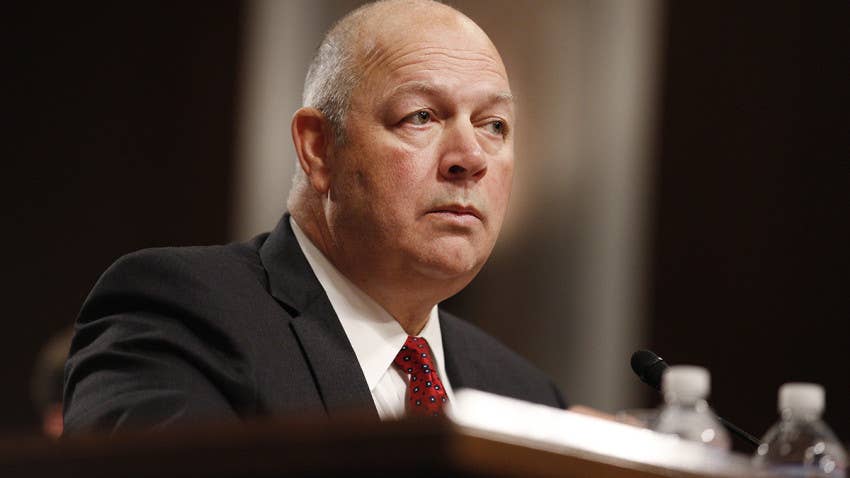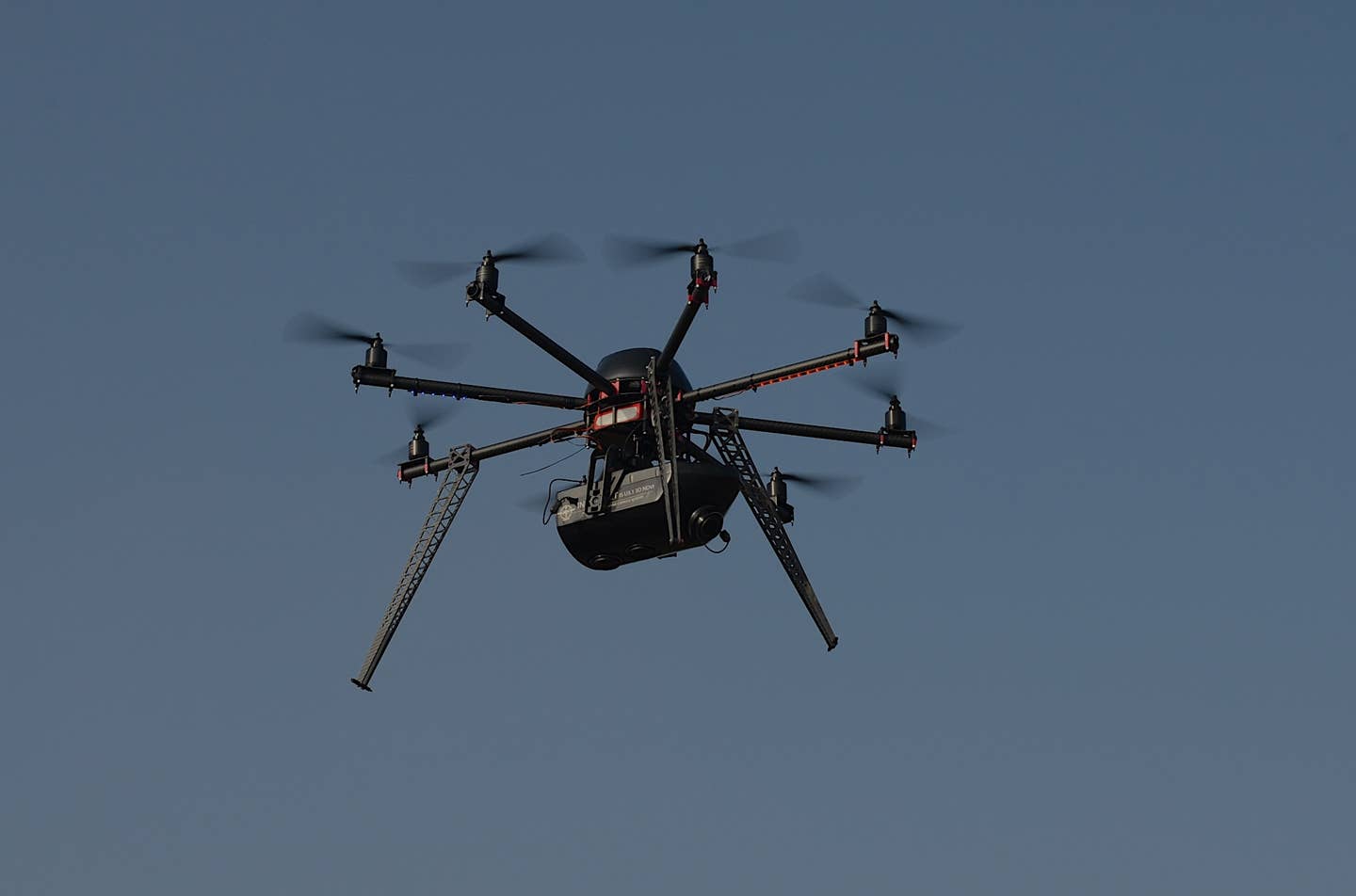FAA Admin: Who Would Want This Gig?
FAA boss Steve Dickson surprised us all with his early departure halfway through his term. I am channeling the great sense of relief I imagine he must feel.

Stephen Dickson, administrator of Federal Aviation Administration (FAA) nominee for U.S. President Donald Trump, speaks during a Senate Commerce, Science & Transportation confirmation hearing in Washington D.C., U.S., on Wednesday, May 15, 2019. Senators pressed Dickson on whether the agency needs to change procedures that led to certification of the 737 Max. Photographer: Stefani Reynolds/Bloomberg via Getty Images
The so-called great resignation has, heretofore, mainly applied to rank-and-file workers in the private sector but evidently the wave caught FAA Administrator Steve Dickson this week. He announced he’s out the door on March 1, less than two weeks hence. That’s a month more than half the five-year term he would have been expected to serve.
And who can blame him, really? To say that federal agency leadership posts have become unwieldy and all but impossible to do well—maybe even at all—is to distort the meaning of understatement. At one time, the skills necessary to do the job involved assembling a competent executive support staff, the smarts to navigate internecine and congressional political minefields and an actual understanding of what the FAA is supposed to do and what it actually can do. With experience as a high-level executive at Delta Air Lines, Dickson may have had these skills, but a big federal agency like the FAA—45,000 employees and $18.5 billion—is nothing like the private sector it regulates.
Despite repeated attempts at making it more like business, even to the extent that the organizational chart has labels for “lines of business,” and chief operating officers for its various departments, the agency remains sclerotic, insular and maddeningly unresponsive at times. But to be fair, not always. It seems improbable that even the most canny administrator could rewire this culture, although a business executive might have the best shot. In GA, we persist in the belief that the administrator ought to be a pilot—which Dickson is—but that experience pales compared to the task of just steering the lumbering bureaucratic ship clear of rocks and making some semblance of progress.
Continuing with a nautical metaphor, Dickson was handed a ship already stuck in the mud. When he took over in August 2019, the Boeing 737 Max had been grounded for six months and wouldn’t return to service for more than a year. He got blistered in congressional hearings, once being told that the FAA was “like a dog watching TV” in its oversight of Boeing. It not being his first barbeque, Dickson would have known going in that the administrator job is an easy target for political slime from legislators less interested in solutions than in looking tough on cable news.
Eight months into Dickson’s watch, the airline industry essentially collapsed with the onset of the COVID-19 pandemic. There was hardly enough ramp space to park idled airliners. FAA revenue from user fees tanked by 43 percent, according to the GAO. Then the mask wars erupted. The mask requirement for airlines and terminals actually comes from the CDC, although the FAA seems to get blamed for it. Just this week, a lawsuit was filed challenging the CDC’s authority to require masks.
Dickson and the agency, nonetheless, found themselves confronted with more than the occasional drama queen bent on disrupting flights over the mask mandate or mitigations in general. Dickson rightly took a hard line on this, proposing no-tolerance high fines. If FAA data is accurate, cabin disruption events continue to rise because, in the end, some people just don’t know how to behave. No fly lists are gaining ever more exclusive members and a proposal by Delta Air Lines that the list be centralized drew pushback from eight senators distraught because their pugilistic constituents might be confused with terrorists. Good point, actually, because if you knock loose a couple of flight attendant teeth on one airline, you should have the right to do it on another. Isn’t this in the bill of rights? Dickson won’t have to deal with this, for which I am sure he is grateful.
Then there’s the 5G fiasco, another time bomb baked into the agency’s agenda long before Dickson was confirmed. I could never wrap my head around how much of a hazard 5G interference really represents. My barely informed opinion suspects it wasn’t much and had more to do with airlines not wanting to upgrade altimeters with filters and/or the cellular industry refusing to lower the azimuth of their antennas. They seem have solved it in Europe, but here? Of course not. The administrator has such intractables land on his or her desk every day. Frankly, it would be more appealing to go fishing or flying. But this was another example of federal agencies building siloed duchies rather than advancing the public good. This is the bleak reality that the next administrator will have to confront.
Occasionally, dollops of reality land in the cheap seats and anyone who attended the Meet the Administrator session at AirVenture last year got a glimpse of that. GA was hugely rankled at an FAA policy change that made it difficult for instructors doing specialty training in non-standard or non-certified aircraft. Dickson told attendees that it would take four years to get new rules in place, but he promised to at least make it easier to comply with the policy. Evidently, he delivered on that, but some in the industry are still steamed that the agency changed the policy at all.
In his statement explaining his departure, Dickson said he had been away from his family and Georgia and tired of the commute to Washington. This is the boilerplate reason all top executives use when moving on, whether by choice or by force. While there could be other reasons for his departure that we don’t know about, we haven’t heard that Dickson has become some sort of political liability or that some scandal is brewing beneath the surface to be revealed later. I’m pretending not to think about it.
People take these agency jobs for various reasons, but the ostensible one is public service. Candidates bring to the job various skill sets and experience, but the reason to accept the position is to serve the public and makes things better. Or at least not any worse. Yet from the outside looking in, we’ve made these jobs permanent hot seats, where the occupant lurches from crisis to crisis in the glare of unyielding publicity that necessarily seems to require more energy just to survive rather than actually lead. Who the heck would want to sign up for that?
Not me. Anybody else?






